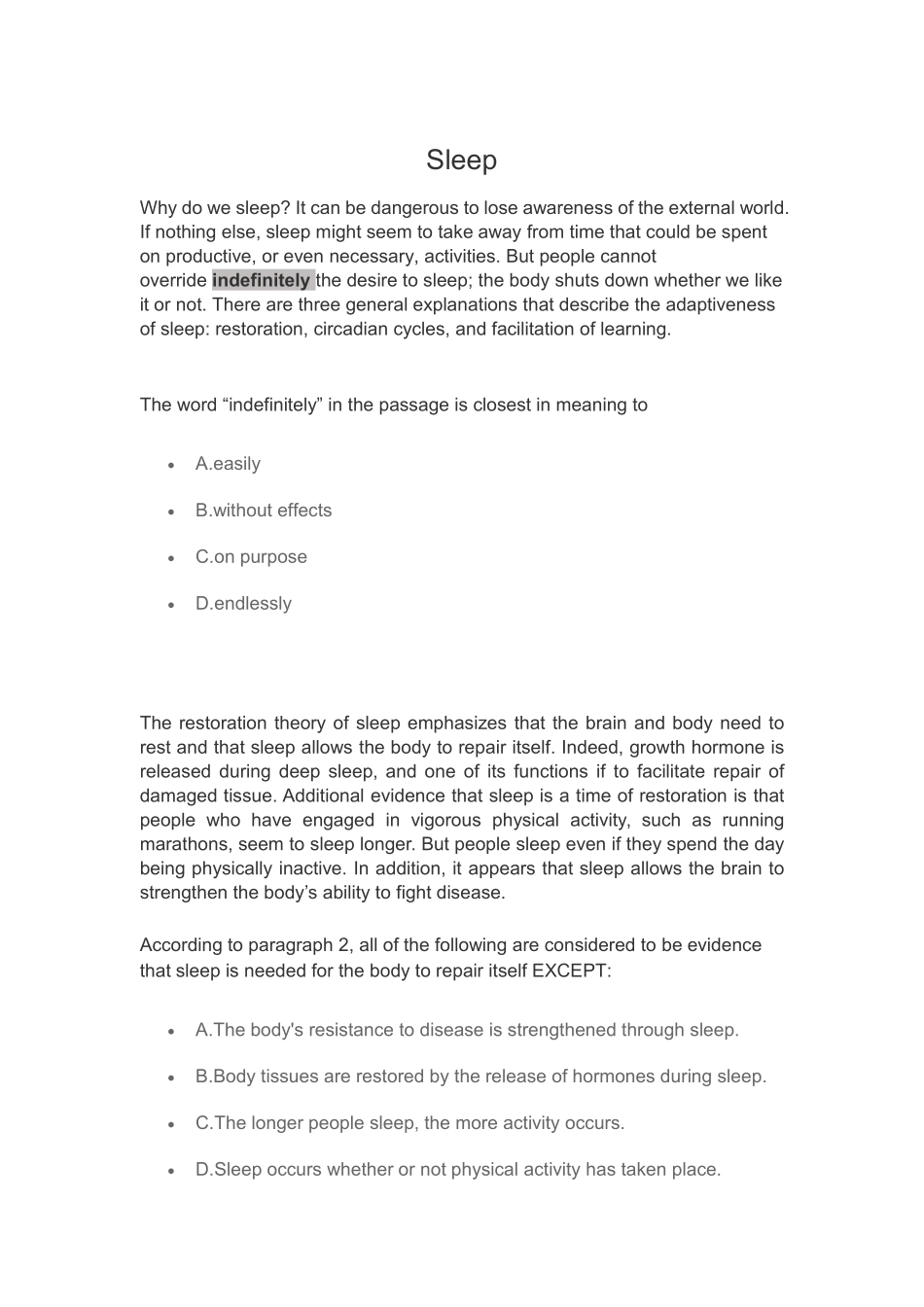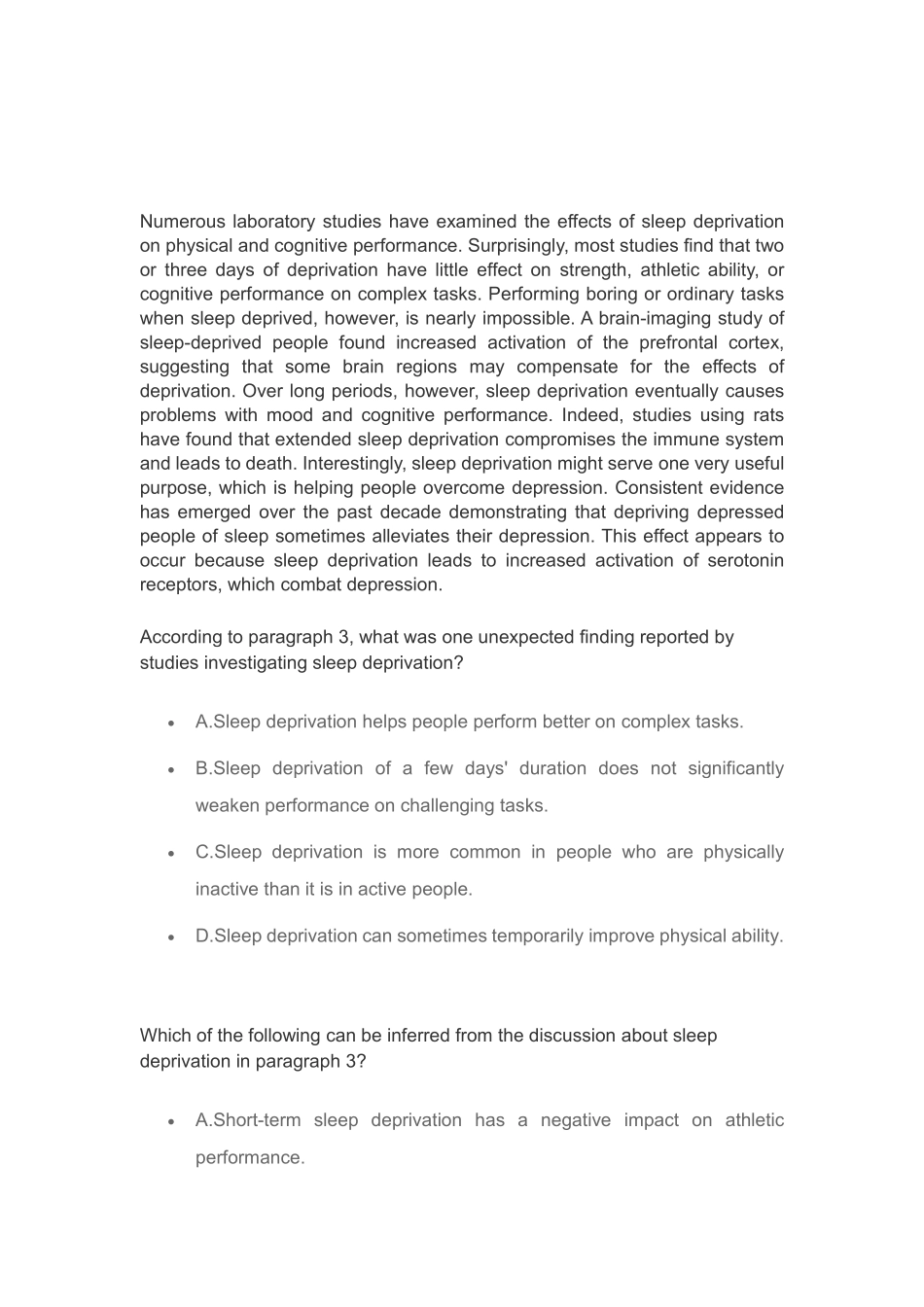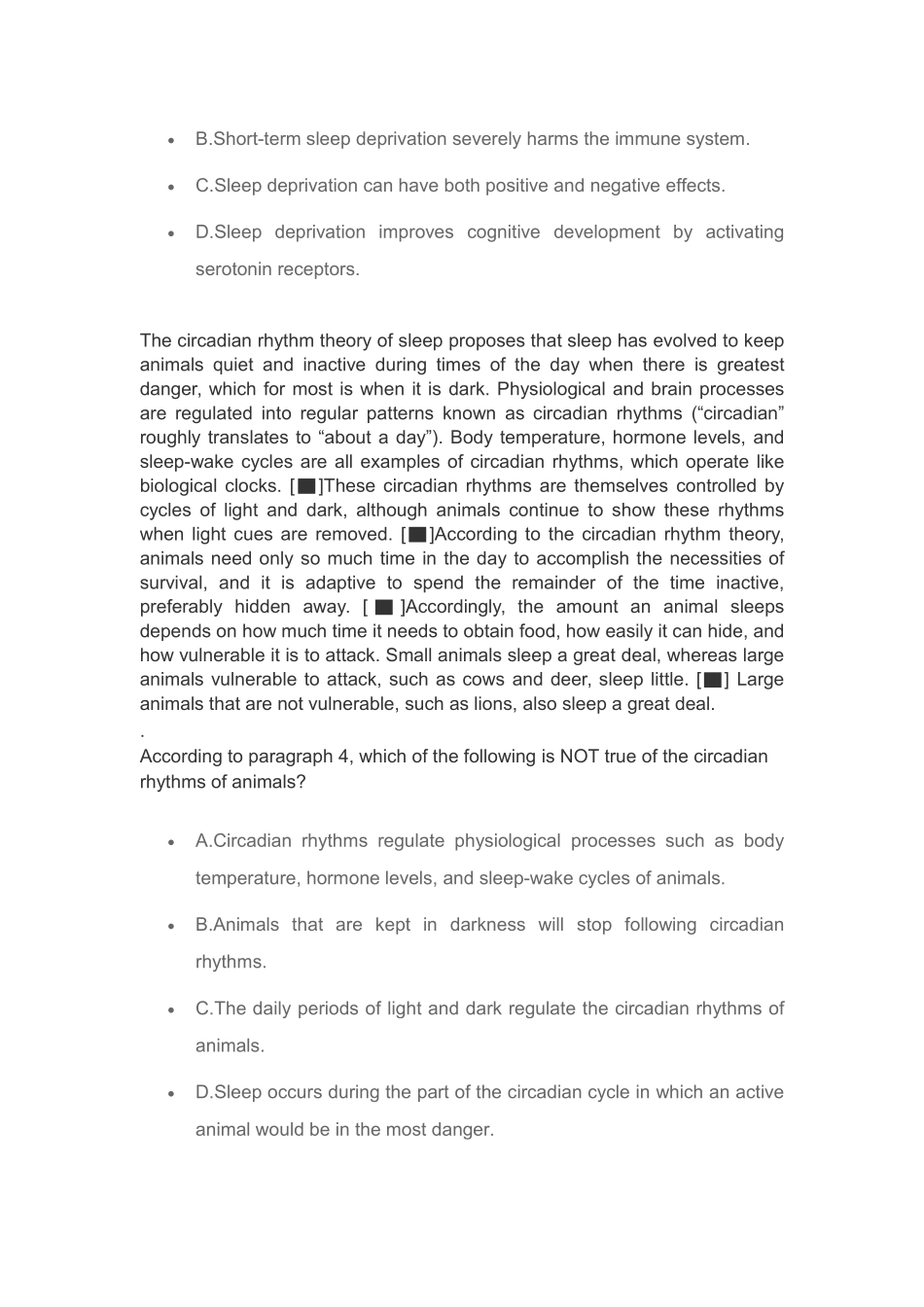SleepWhy do we sleep? It can be dangerous to lose awareness of the external world.If nothing else, sleep might seem to take away from time that could be spenton productive, or even necessary, activities. But people cannotoverride indefinitely the desire to sleep; the body shuts down whether we likeit or not. There are three general explanations that describe the adaptivenessof sleep: restoration, circadian cycles, and facilitation of learning.The word “indefinitely” in the passage is closest in meaning toA.easilyB.without effectsC.on purposeD.endlesslyThe restoration theory of sleep emphasizes that the brain and body need torest and that sleep allows the body to repair itself. Indeed, growth hormone isreleased during deep sleep, and one of its functions if to facilitate repair ofdamaged tissue. Additional evidence that sleep is a time of restoration is thatpeople who have engaged in vigorous physical activity, such as runningmarathons, seem to sleep longer. But people sleep even if they spend the daybeing physically inactive. In addition, it appears that sleep allows the brain tostrengthen the body’s ability to fight disease.According to paragraph 2, all of the following are considered to be evidencethat sleep is needed for the body to repair itself EXCEPT:A.The body's resistance to disease is strengthened through sleep.B.Body tissues are restored by the release of hormones during sleep.C.The longer people sleep, the more activity occurs.D.Sleep occurs whether or not physical activity has taken place.Numerous laboratory studies have examined the effects of sleep deprivationon physical and cognitive performance. Surprisingly, most studies find that twoor three days of deprivation have little effect on strength, athletic ability, orcognitive performance on complex tasks. Performing boring or ordinary taskswhen sleep deprived, however, is nearly impossible. A brain-imaging study ofsleep-deprived people found increased activation of the prefrontal cortex,suggesting that some brain regions may compensate for the effects ofdeprivation. Over long periods, however, sleep deprivation eventually causesproblems with mood and cognitive performance. Indeed, studies using ratshave found that extended sleep deprivation compromises the immune systemand leads to death. Interestingly, sleep deprivation might serve one very usefulpurpose, which is helping people overcome depression. Consistent evidencehas emerged over the past decade demonstrating that depriving depressedpeople of sleep sometimes alleviates their depression. This effect appears tooccur because sleep deprivation leads to increased activation of serotoninreceptors, which combat depression.According to paragraph 3, what was one unexpected finding reported bystudies investigating sleep deprivation?A.Sleep deprivation helps people perform better on complex tasks.B.Sleep deprivation of a few days' duration does no...


